EARTHWORKS ETHOS MICROPHONE REVIEW.
For full-time streamers and content creators, most depend upon venerable options like the Shure SM7B or Electro-Voice RE20. While these are tried-and-trusted choices and considered “endgame” for many, I’ve often wondered if using older tech is really the best bet for modern applications like livestreaming. Enter the Ethos microphone from Earthworks, designed for “on-air personalities, podcasting studios, announcers, and competitive gamers.” Can it go toe-to-toe with other high-end podcasting mics and, if so, will it be a permanent replacement for my own Shure SM7B that I’ve been using for over eight years? This is my Earthworks Ethos review.
The premium package
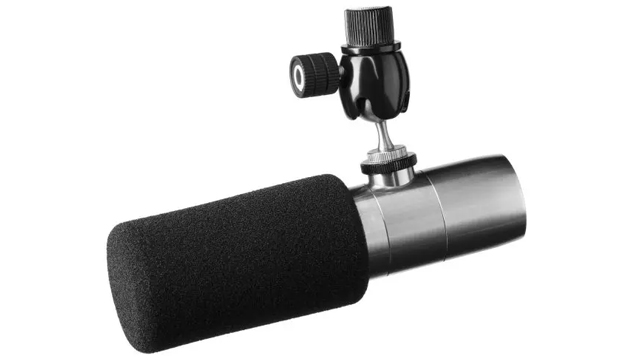
Diving straight into the box, I took out the Earthworks Ethos itself, the attached (and pure genius) M2-R Ball Mount, a 3/8″ thread adapter, and a little welcome card with some little tips for starting out with the mic.
It’s clear from the get-go that the Ethos is a premium bit of kit. The stainless steel casing of my unit — it’s also available in matte black for an additional $50 — oozes quality and it feels pleasingly weighty in the hand. Though I’d urge everyone to treat microphones with care, this one at least feels like it could take a knock.
Setting up
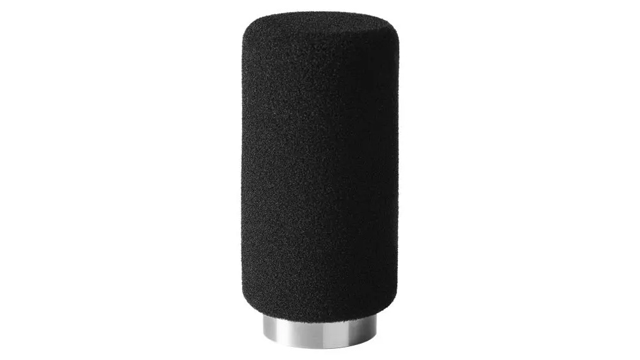
I combined the Ethos with an Elgato Wave Mic Arm LP, making for a sleek solution that I can fold in and out. Using an XLR cable, I plugged the mic into my GoXLR, a fairly common solution that many professional streamers have come to rely on. It provides a good amount of clean gain in addition to a suite of effects that include an EQ, compressor, noise gate, and de-esser.
Supplying the mic with phantom power and 35 dB of gain was easy enough, and I then began to position the microphone for the best sound while flat (no effects applied). Earthworks encourages users to work on positioning the microphone in a preferred place before tweaking EQ and other effects. Thanks to the generous pickup distance of this mic, users don’t have to be right up on it to get good audio.
Finally some freedom!
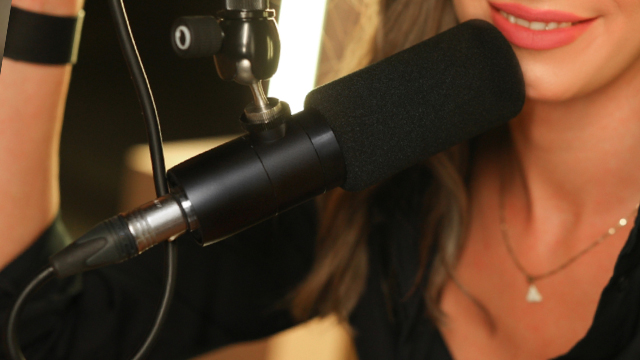
As someone that has been using the Shure SM7B for eight years now, I’ve grown used to staying very close to the mic for optimal sound quality. With the Ethos, you can back away much further. It’s the condenser advantage, though with much better rejection than I’ve experienced with other condenser microphones.
It’s basically the best of both worlds: you get the more natural and effortless tone of a condenser while enjoying the noise rejection of a dynamic. I never thought I’d be considering a condenser for my untreated office, as it’s one of the primary reasons that I went with the Shure SM7B in the first place, but the Ethos closely matches it.
Great sound made easier

When left flat, the Ethos captures a clear warmth in the voice without muddying things. Then there are higher frequency details that sparkle without being offensive to the ears. The difference between this mic and common dynamics at optimal recording distances is subtle, but it’s definitely there. There’s a perceivable boost in clarity and the Ethos picks up on more nuanced sounds more consistently. The best way I can explain it is to compare how users have to push their voice into a dynamic mic to get it to sound awesome, while the Ethos’s condenser setup acts as though it is reaching out and grabbing the sound.
This accuracy can be enjoyed much further from the capsule than you might expect, and it’s this versatility that should make the Ethos so attractive to pro streamers and content creators. Rather than having to be right up on a dynamic mic for good sound, creators can move around more or put the mic a little out of frame for a clearer webcam image.
The provided windscreen does a fantastic job of reducing the impact of plosives, further adding to the overall feeling of confidence I had when using this mic.
The M2-R ball mount is also deserving of a special nod, as it quickly allows the repositioning of the mic with very little effort.
Above you’ll find an example of how the Ethos sounds when flat and then with effects applied. I’m talking into the mic at a 45-degree angle, which is generally best practice for livestreaming as it keeps your face clear without drastically impacting sound quality.
It’s also worth pointing out how great the Earthworks Ethos looks on camera. With most streamers and content creators now showing themselves and their gear on screen, it’s nice to feature a terrific-looking mic in the frame. With how common the SM7B has become in streaming setups, it’s cool to have something a bit different and, dare I say, better looking in the shot!
Earthworks Ethos vs Shure SM7B: The streamer’s choice
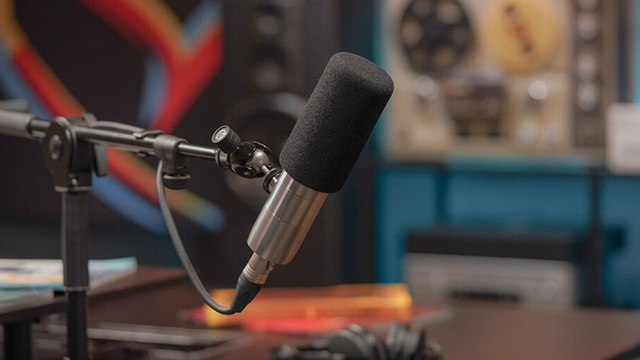
All in all, I think the Earthworks Ethos sounds fantastic and I’m not alone. In blind testing through studio monitors and headphones, my partner flawlessly chose the Ethos over my Shure SM7B. Though she’s less obsessed than me when it comes to audio, she could still pick the Ethos out.
With that said, I still think the Shure SM7B is a fantastic microphone for those who are using it correctly. However, it’s easy to go wrong with it. From placing it too far away and losing almost all of what makes a high-end dynamic worth buying in the first place, to getting way too close and overloading the audience with the proximity effect, there are many potential pitfalls. And, even when I have been using it correctly, I, like many others, have had to pick up a signal booster to get the mic up to level without introducing a hum or ridiculous noise, which further bumps up the price of the total package.
For me, the flexibility of the Ethos and being able to place it in a wider range of spaces without suffering too much quality loss, combined with the overall more natural tone that is particularly receptive to EQ and compression, makes it a winner over my Shure SM7B. Both mics can be great, but it’s tougher to make the SM7B shine and, if you’re not fully concentrating on your vocal performance, it’s easy for the quality to drop off.
If they were the same price, I wouldn’t hesitate in pointing everyone toward the Ethos over the Shure SM7B.
Earthworks Ethos Review: Is it worth buying?
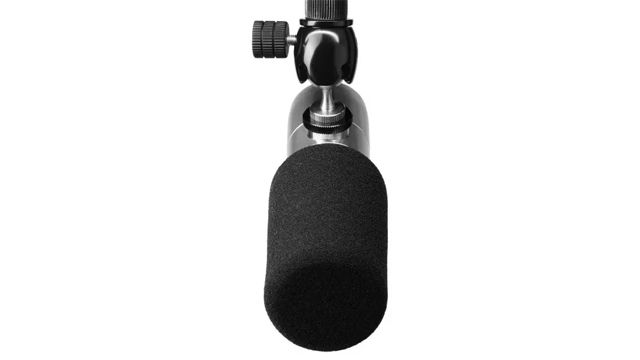
At $699, the Earthworks Ethos is in a totally different price bracket to the $399 SM7B and $449 RE20. Even with those dynamics often demanding a $100 signal booster, there’s still a $200 gap. Are the advantages of a condenser mic with good rejection, better overall smoothness and natural tone, fantastic stainless steel body, genius mounting system, and super-effective included windscreen worth that $200-300 premium? That comes down to you and how you’ll be applying it in your workflow.
Looking at the Ethos as an investment over time, like I did with the SM7B in 2014, I think all professional and enthusiast creatives should consider the Ethos above all else when shopping for their next microphone. If you can afford it, there’s a hell of a lot to love with the Ethos and it’s exciting to see a modern mic finally putting pressure on those golden oldies.
For those looking for a USB solution, a review of the Earthworks ICON USB review is now available on our sister site, PlayStation LifeStyle.
Ethos microphone review unit was provided by Earthworks Audio.
-
High-end condenser that captures a natural sound.
-
Rejects unwanted noise like a dynamic.
-
Picks up great sound from a variety of positions.
-
Brilliant mounting system.
-
Stainless steel finish.
-
Extremely receptive to EQ and compression.
-
Superb included windscreen.
-
A new product and so not yet time-tested.
-
$699 is notably higher than the common competition.







